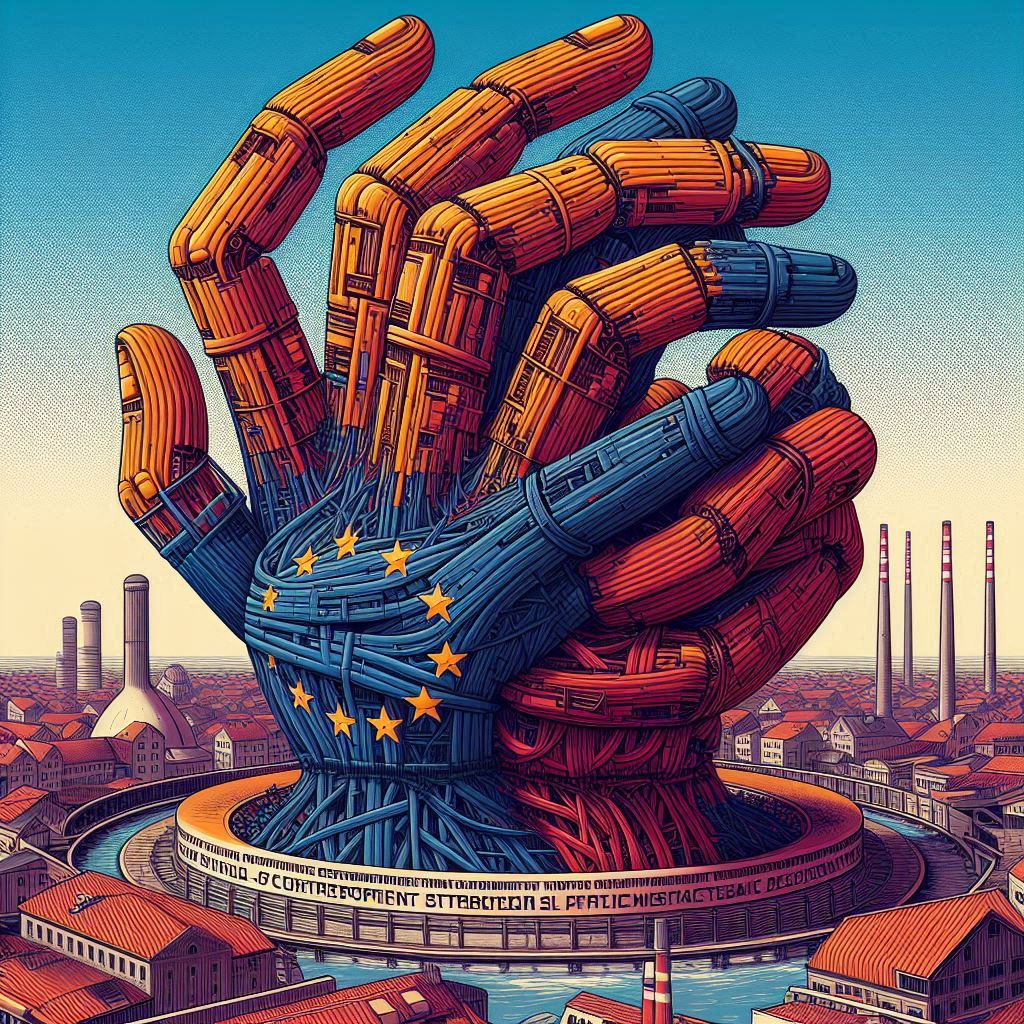The Dream of an European Political Union
But a European Democracy is Needed to Achieve It

An article by Francesco Grillo for Il Messaggero.
“I believe we Europeans feel too secure. And yet, our time of global leadership is over. Will we still be able to influence the world through our values? I don’t think so—unless we manage to adapt to a new world. After all, history teaches us that civilizations are not eternal.”
It’s striking how relevant these words by German Chancellor Konrad Adenauer still are. He spoke them in 1956, a year before the founding treaty was signed in Rome. Together with Schuman and De Gasperi, the father of Europe proposed moving toward political union, and that became the most successful political project of the twentieth century. Today, however, that union remains incomplete—insufficient in the face of challenges the founding fathers could not even have imagined. Yet, a political union can only be realized if it is accompanied by the creation of a democracy and, thus, of a European demos that legitimizes the union. And this is the crucial detail that decades of integration have overlooked. A detail that even the most authoritative proposals aiming to shake us out of the lethargy of a dangerously slow decline seem to underestimate.
That it is necessary to speak with a single voice to the United States and China has been made vividly clear by recent events. A united yet voiceless Europe is unable to untangle the strategic knots of defense—and this risks producing a reverse miracle: worsening already fragile “financial stability pacts” without increasing our strength. We haven’t even been able to intervene against disinformation platforms explicitly aimed at weakening us from within. Nor has Europe put forward a common position on the conflicts that have surrounded us for years—from Syria to Morocco, via Gaza—and this undermines the moral authority from which Europe ought to start anew. All this is happening in a context of rapid change, where the cost of indecision is even higher than the risk of making mistakes. This holds true even in matters of trade, where, at least in theory, unity should be complete. Technically, the person responsible for tariffs in Europe is Commissioner Maroš Šefčovič (who, incidentally, belongs to the same Eurosceptic party as Slovak Prime Minister Fico); but in practice, the only tactic seems to be waiting—so as not to step on anyone’s interests while trying to hold them all together. But failing to prepare for different scenarios means European businesses are unable to plan any response—already paying steep costs for uncertainty.
We must move toward political unity. But this collides with a problem we have never resolved. A Europe that can truly make decisions without waiting on member states needs stronger popular legitimacy. “There can be no taxation without representation” observed the British Prime Minister just months before the 1776 American Declaration of Independence. This is the most basic and ironclad law of democracy—one that the Union has chosen as its founding value. Indeed, the weakness of past integration has precisely been its failure to increase citizens’ power to give it strength. The law by which we elect the European Parliament (the only supranational elected assembly in the world) has remained unchanged since 1979, the year it was first directly elected.
The example of the two Roman consuls, who for 500 years helped transform a small village into an empire, is illuminating. They held absolute power over the army in times of permanent war, served one-year terms without the possibility of re-election, and adhered to strict rules on conflicts of interest: they governed, therefore, to solve real problems—free from constraints and with the sole aim of enhancing their reputations. But what is especially important to remember is that in that Rome—as in Athens—power drew its legitimacy from forms of democracy that today may seem advanced: in the comitia centuriata, all citizens of the Republic—both patricians and plebeians—directly chose who would bear the burden of such responsibility.
Political unity in Europe is necessary. And Europe must be equipped with a common defense—not just to protect itself from Russia, but to once again have the power to act in a Mediterranean it has abandoned. But we can no longer “build Europe without building Europeans”. Without imagining and experimenting with new forms of democracy—such as those that will be explored at the major conference in SIENA next month on the Future of Europe—Europe will remain paralyzed, merely observing in conferences a future that it must instead reclaim. It will be necessity itself—the instinct for survival—that makes Europe the laboratory for new forms of democracy and power.
References:
The Economist (2025). What’s wrong with democracy in Europe?. Link.
European Commission (2025). Defence. What European defence does. Link.
New York Times (2025). Europe’s Been Negotiating by the Book, but Trump’s Tearing It Up. Link.
Limes (2024). La guerra circonda il Mediterraneo. Link.

